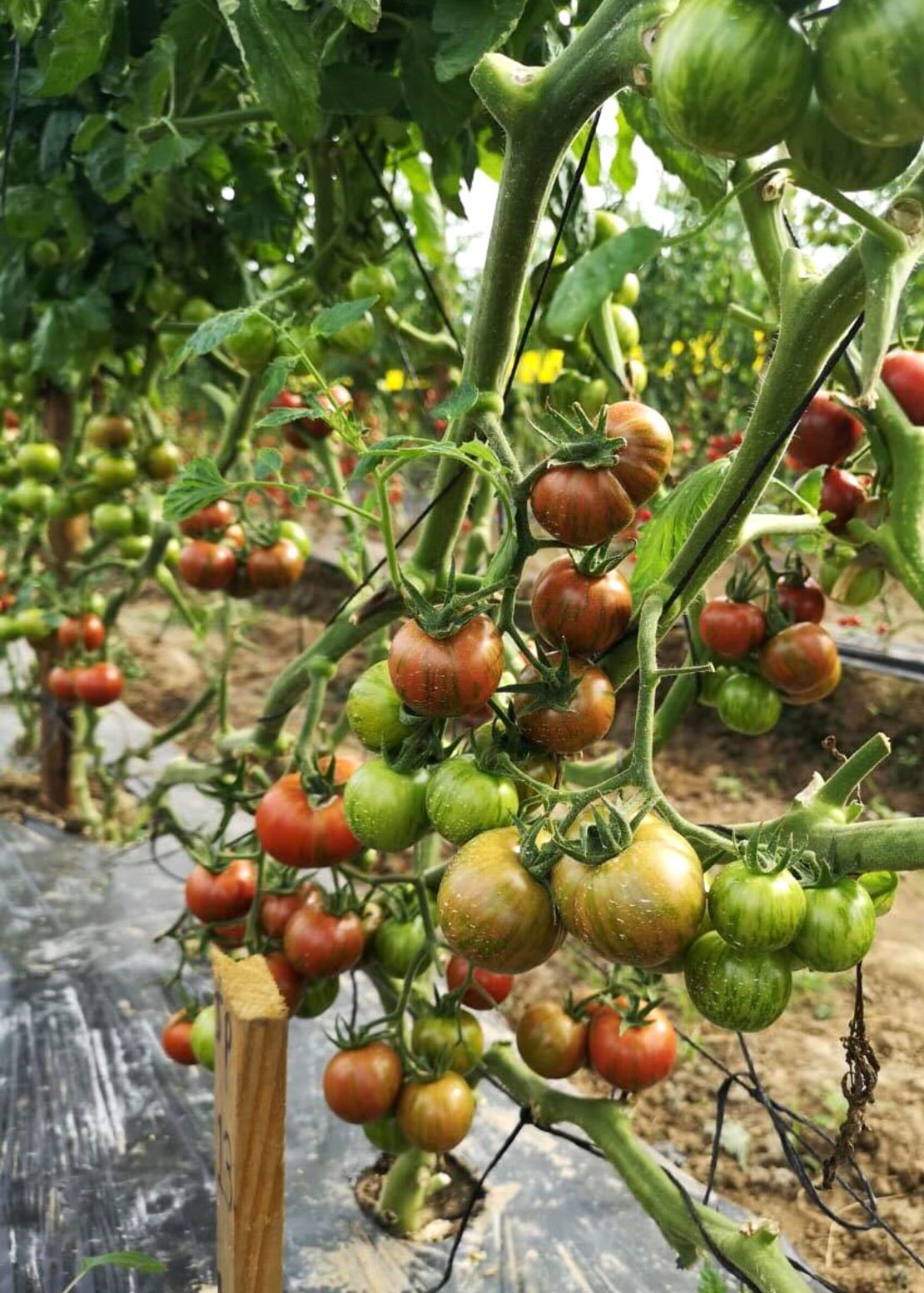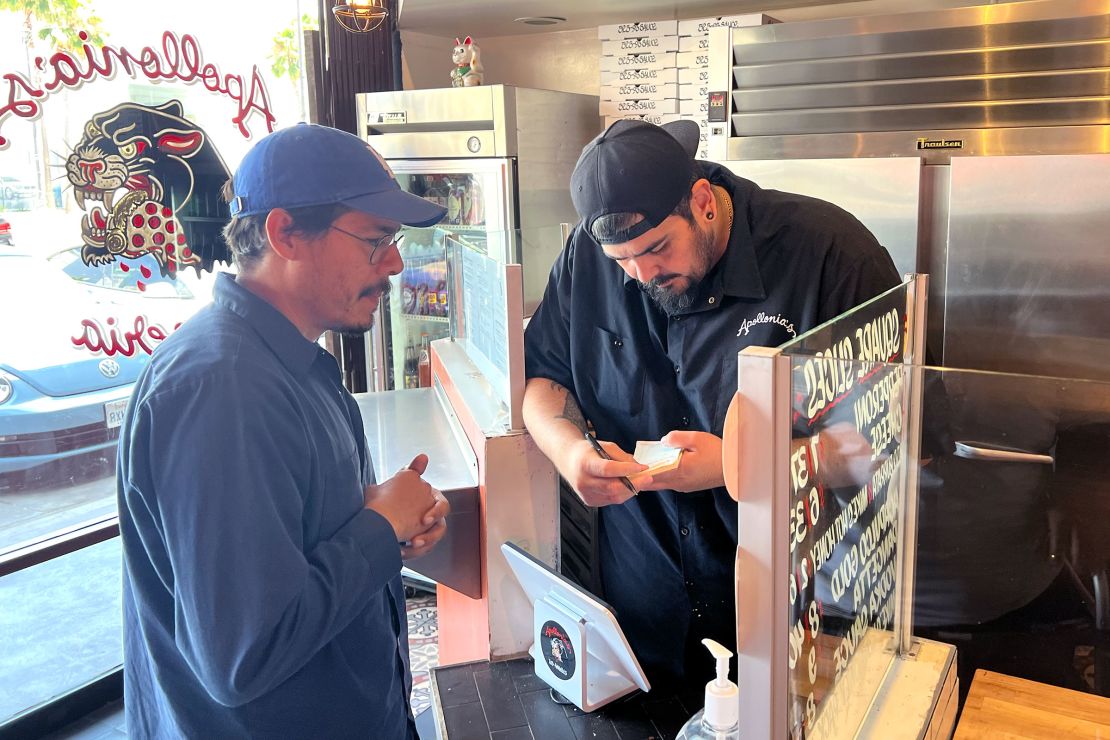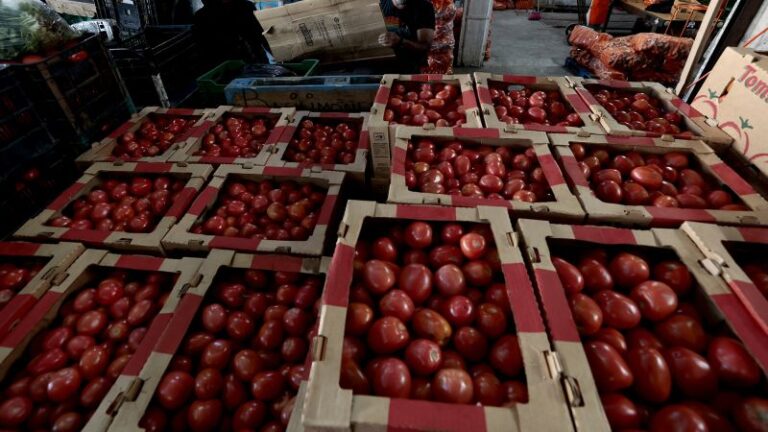CNN
—
If tomato prices jump because of new tariffs on the Mexican-grown produce, restaurant owner Teresa Razo says her businesses could go bust.
“I give it three months, and then we go bankrupt,” said Teresa Razo, owner of two Argentine-Italian restaurants in Southern California.
On July 14, a nearly three-decade-old US-Mexico trade agreement may give way to 20.9% tariffs on most Mexican tomato imports. That could mean higher prices for Americans at the grocery store, at the pizza parlor — anywhere that uses tomatoes. And for some small businesses, higher prices could close them down entirely.
The tomato tariffs are among the latest examples of President Donald Trump’s chaotic tariff policy, which has shaken up global trade, left companies uncertain how to plan for the future, and made Americans nervous about where the world’s biggest economy could be headed.
Field-grown tomatoes cost US shoppers about $1.70 per pound as of May 2025, according to the Bureau of Labor Statistics. Consumer tomato prices could rise by about 10% and demand may fall by 5% as a result of these tariffs, according to Timothy Richards, a professor of agribusiness at Arizona State University.
The United States is the top market for Mexican tomato exports, according to the US Department of Agriculture. In a June report, the department found that the new tariffs would likely lead to a drop in tomato imports and higher prices.
Some US growers say it’s about time for the tariffs, which are meant to fight “dumping,” or the practice of selling cheap exports into a foreign market to undercut homegrown products.
The Tomato Suspension Agreement has been in place since 1996, essentially setting a floor for tomato imports. The Commerce Department announced in April it was withdrawing from the agreement because the “current agreement has failed to protect U.S. tomato growers from unfairly priced Mexican imports,” according to a statement. That, in turn, will result in the 20.9% duties on most Mexican tomato imports.

“For more than three decades, five consecutive agreements have failed to stop the illegal dumping of unfairly priced tomatoes into the U.S. market from Mexican producers,” Robert Guenther, executive vice president of the Florida Tomato Exchange, told CNN in a statement. Guenther added that he believes the trade agreement has harmed American farmers.
It’s an accusation disputed by Walberto Solorio, a Mexican tomato grower and president of the Baja California Agricultural Council, which represents more than 120 tomato growers.
Solorio told a CNN producer that small violations by some Mexican producers have not been enough to warrant the collapse of the entire agreement.
“I see it as more of a political issue than a commercial one, not logic or numbers,” Solario said. “Everything indicates, within reason, that the agreement should prevail and that the agreement has been fulfilled.”
‘Instability’ and ‘fear’
Consumers and businesses may feel the pinch.
“Somebody that would dine out three times a week, maybe now they’ll do it once or twice because we have to increase our prices,” said Razo, who needs tomatoes for salads and for marinara sauce in pizzas and pastas at her restaurants, Villa Roma in Laguna Hills and Cambalache Grill in Fountain Valley.
But some companies will avoid the tariffs because they use US-produced tomatoes. Heinz uses only domestically grown tomatoes for its ketchup products sold in the United States. DiGiornio also states on its website that its frozen pizza sauces are made with California-grown tomatoes.
And some small businesses, like Appollonia’s Pizza in Los Angeles, might eat the cost of using Mexican tomatoes for its toppings instead of passing it on, according to co-owner Justin De Leon.

But not everyone can afford that.
Razo is trying to source tomatoes from domestic growers instead, but if she can’t find US tomatoes fast enough, she might have to raise menu prices.
With often last-minute changes to tariff implementation this year, she’s stopped following the news every day for her mental health. She said she’ll take a wait-and-see approach with the tariffs before devising a strategy and added that the tariffs have created “instability” and “fear.”
“We don’t need more of that,” Razo said. “We already have enough.”
Guenther said American tomato growers can produce enough tomatoes year-round, “thanks to technological advancements and geographic diversity across the United States. Terminating the agreement would still allow Mexican producers to sell tomatoes in America; they’d just have to comply with trade laws.”
But Solorio said Mexican imports have been subject to thorough quarterly audits. “We have complied with the minimum reference prices, with the reports, with the border quality inspections,” he said.
De Leon said Appollonia’s Pizzeria uses Mexican tomatoes for its fresh tomato toppings, while its sauce is made with California tomatoes.
He changes where he buys his tomatoes from to get the best in-season produce year-round, switching from California to Mexico tomatoes depending on the season.
Tariffs on key ingredients like cheese are already costing him more and can be just another headache in a stressful business.
“I just hope it comes to an end soon,” De Leon said.


